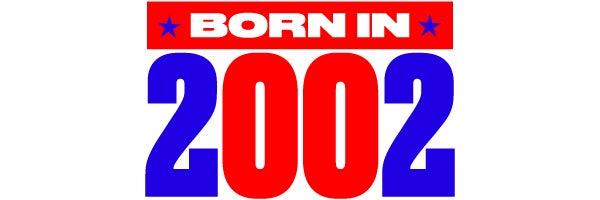What It’s Like To Be A Chinese-American High School Senior During Coronavirus
For about a week in February, I had a mild cold, possibly allergies, and I felt compelled to force in my sneezes at school thanks to “jokes” from my classmates that Chinese people deserve to suffer from coronavirus because “they’ll eat anything that moves.” While I watched physical hate crimes against East Asians rise, my Virginia public high school classroom mirrored the outside world with xenophobic comments even from teachers who joked that students had COVID-19 because they sneezed. On TikTok — where many high school students basically live — memes with audio of “it’s corona time” circulated, and some users would comment “corona” or the microbe emoji under videos of anyone who looked remotely East Asian. And then, the president came on TV and began calling it the “Chinese virus,” further encouraging the sinophobia and hate that was already happening all around us.
AdvertisementADVERTISEMENT
All of this was happening as coronavirus cases surged in China, and I worried intensely about my grandmother and the rest of my extended family, who had put their Chinese New Year celebrations on pause due to health concerns and were living in a strict lockdown. I thought about how my grandma’s daily routine of waking up early to go to the street markets to buy fresh groceries for the day was interrupted, and worried about whether she had enough food and if she would have access to medical care if she needed it.
I am no stranger to sinophobia and racism toward East Asians, and it is a fact I grew up with that Western perception often demonizes aspects of my culture. But it was still astonishing to see Americans jump from joking about the virus and brushing it off, even as it was clearly coming toward the U.S., to solemnity as soon as COVID-19 began affecting them. Just a couple of months ago, hardly anyone took it seriously because it was affecting East Asian people and the “othering” rhetoric was that it was their fault they have to deal with the virus because of what they ate. It showed me that as a society, we have a hard time empathizing with people's pain until we’re directly facing it ourselves.
Navigating between my identities of being Chinese-American and a high school senior has taken an emotional toll on me amid this crisis. Like many, I’m missing out on senior activities; our graduation has been delayed for now, although I have plenty of friends in other states who have to have drive-through or even Zoom graduations. But I’m also a first-generation, low-income student in a predominantly white community. My mother never graduated from high school, and for the past four years, there’s nothing I’ve looked forward to more than seeing my single, immigrant mother’s beaming face in the audience as I walk across the stage to receive my high school diploma. She works in a restaurant, and they’ve closed temporarily due to safety precautions, so like many Americans, I’ve experienced a pause in my only source of income. This fall, I was planning to attend Barnard College of Columbia University, but now that many college campuses are exploring the possibility of canceling in-person classes in the fall, there is even more uncertainty in my life.
AdvertisementADVERTISEMENT
These days, my mother frowns at the idea of getting some fresh air by biking outside. She fears for my safety not only because of the virus but because of my physical features.
It has become more crystal-clear than ever to me as I’m living through all this how quickly the “model-minority” myth internalized by many Chinese-Americans, which is blatantly anti-Black, can unravel. It’s also shown me that Chinese-Americans must show more and greater solidarity with people of color, Indigenous peoples, and the Black community. Many privileged and middle-class Chinese-Americans have long appealed to whiteness, embracing the model-minority archetype, and rarely speaking out about issues that impact low-income, uninsured, and undocumented Chinese-Americans. Look no further than a recent op-ed by former presidential candidate Andrew Yang about how Asian-Americans need to “embrace and show our American-ness in ways we never have before.”
This crisis has also made it even clearer that the Chinese-American community is not a monolith. As we are facing unprecedented circumstances such as rampant sinophobia, losing out on graduation, job layoffs, social isolation, surviving the virus, the strain of being uninsured or undocumented, and so much more, I urge my fellow Chinese-Americans to understand the complex intersections of our community. This public health emergency is just one of numerous examples exposing how whiteness will never be our ally, exhibited by how the “model minority” myth is used to pit us against other people of color. It magnifies the classist systems already at work ravaging our demographic.
My grandmother had been planning to visit us in Virginia after Chinese New Year this year, but of course her trip got canceled. The Chinese New Year holiday symbolizes new growth and prosperity, and in light of that spirit I hope that by the next celebration, my grandmother will be by my side, and that we are no longer experiencing the separation, anxiety, and fear that surround us now. And, with these experiences having profoundly shaken me, I hope that when this public health emergency is eventually resolved, there’s a collective awakening around the trauma we as Chinese-Americans have faced and that our schools, colleges, and social media comment sections will be safer for those who come after me.
AdvertisementADVERTISEMENT







